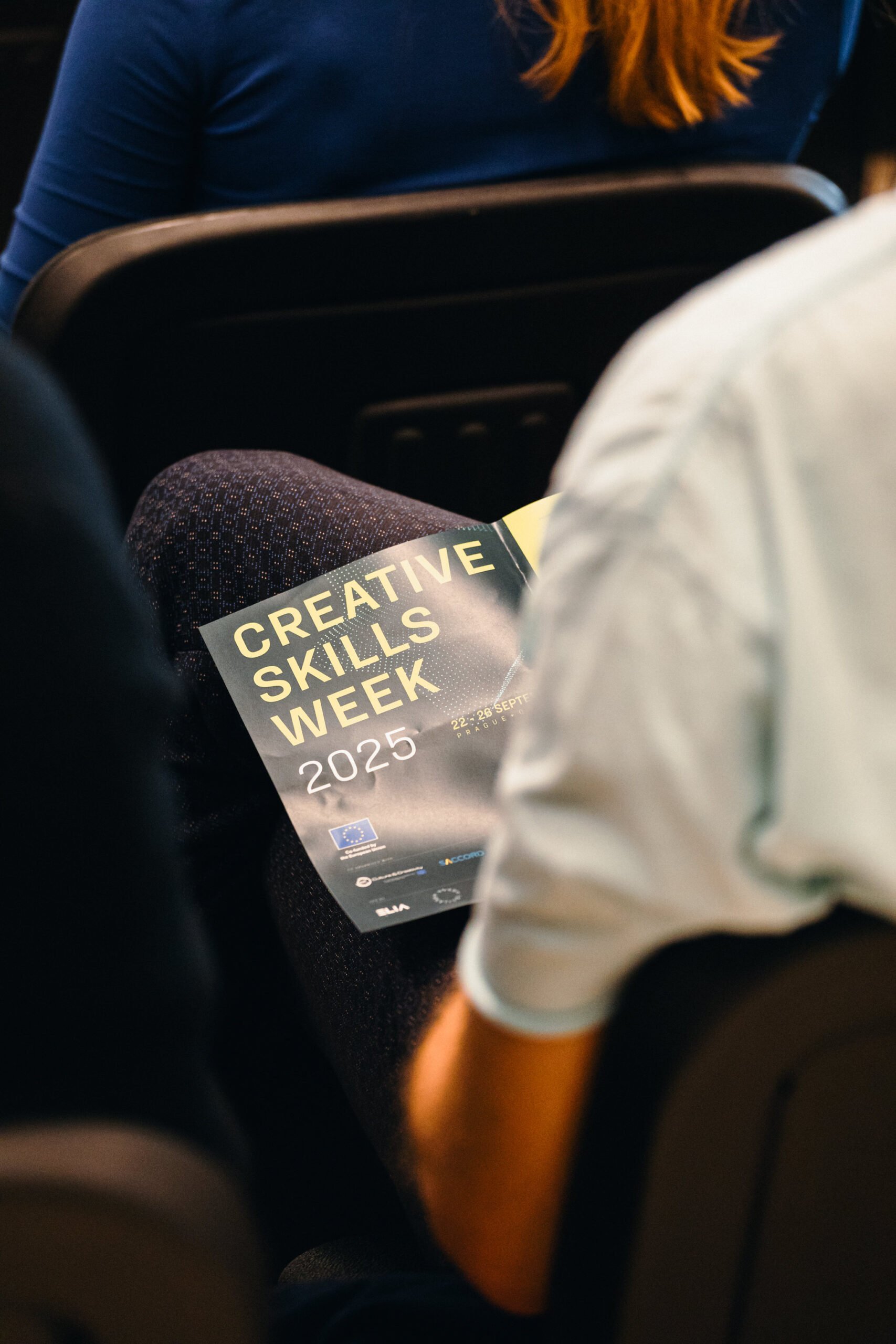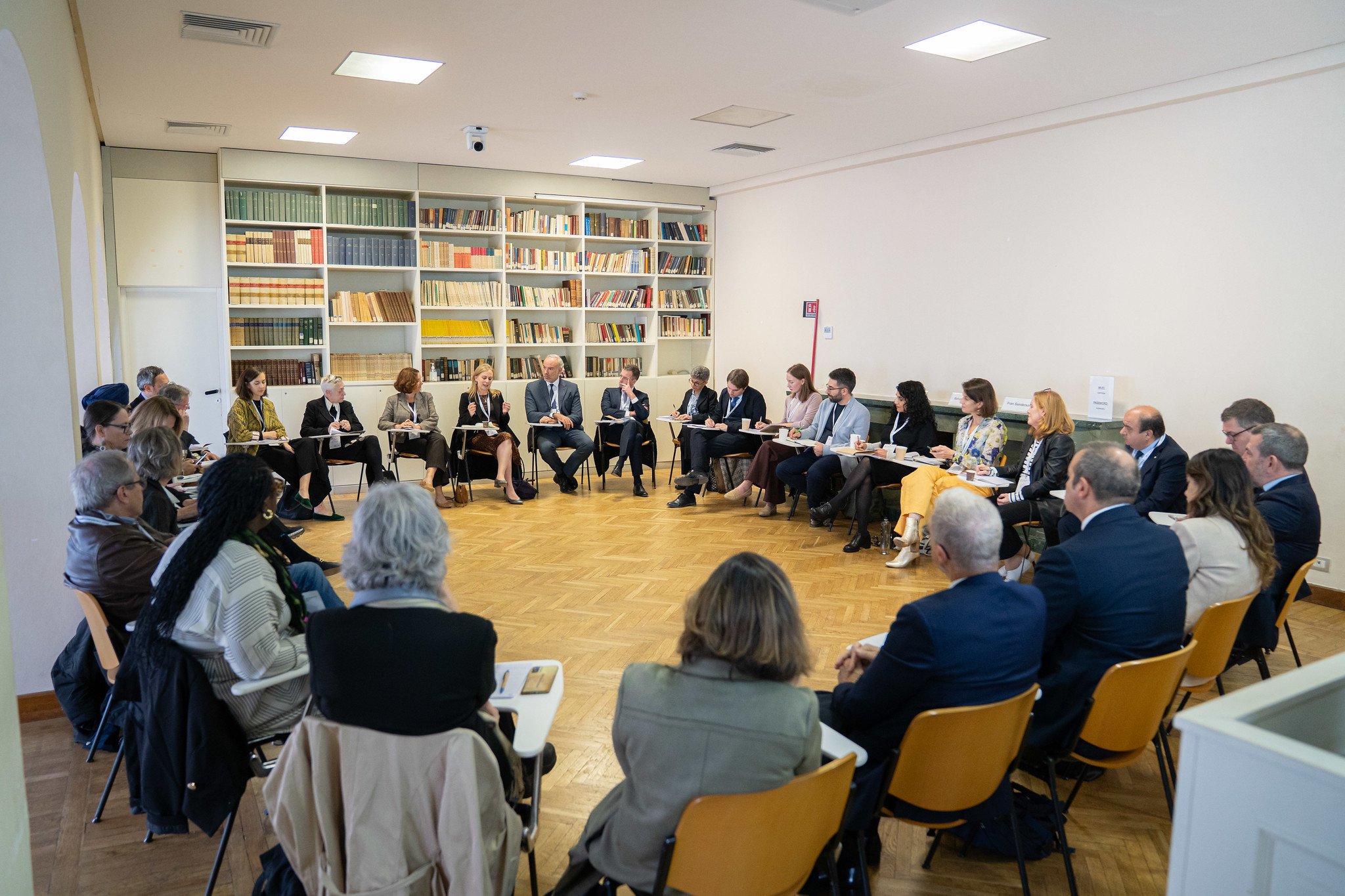Join us from 22 – 26 September 2025 for our Creative Skills Week 2025. Register here to follow online participation.
In a world where careers are increasingly non-linear and skills can become outdated within just a few years, lifelong learning has become essential. Traditional education systems struggle to keep pace, but micro-credentials are emerging as a powerful response.
Far from being just a buzzword, micro-credentials mark a shift in how we acquire, validate, and apply knowledge throughout our lives. They offer faster, more personalised, and more relevant learning. Whether you’re a creative adapting to new digital tools, a freelancer building a unique skill set, or an employer seeking up-to-date expertise.
But what makes micro-credentials so valuable especially for dynamic sectors like the Cultural and Creative Industries?
According to the European Commission, micro-credentials are documented learning outcomes from a small volume of study, assessed against transparent standards to ensure credibility. As the shelf life of skills continues to shrink and industries demand more agility, micro-credentials offer a practical and future-proof way to keep learning relevant, responsive, and accessible. Nonetheless, micro-credentials are more than just “mini-courses”, their value lies in their unique features, which distinguish them from traditional qualifications:
- Rigorous Quality Assurance: Despite their short format, micro-credentials are backed by strong evaluation frameworks, ensuring trust from both learners and employers.
- Stackability: Learners can combine multiple micro-credentials into larger qualifications, creating personalised and flexible learning pathways.
- Portability and Recognition: Designed for transfer across sectors, institutions, and even countries, they enable learners to carry verified skills into new opportunities.
- Flexibility and Relevance: Delivered in digital and modular formats, they are ideal for professionals, freelancers, or anyone reskilling quickly in response to technological change.
The “Pick and Mix” Education Model
Imagine an education system where learners design their own pathways, combining micro-credentials from universities, VET providers, workplace training, and informal learning platforms. This flexible “pick and mix” model offers a bold, personalised vision for the future, one where individuals shape learning around their goals, blending diverse experiences into a coherent qualification.
However, turning this vision into reality is not without challenges. The lack of standardisation across countries and institutions makes credit transfer and quality assurance difficult. Employer recognition is growing but uneven, and the sheer volume of available credentials can overwhelm learners. Without clear frameworks, even the most promising micro-credentials risk losing value.
Nonetheless, progress is underway. Countries such as the US, New Zealand, and Ireland are pioneering national strategies, while the European Commission through initiatives like the European Skills Agenda and Erasmus+ is driving cross-border experimentation and the creation of shared definitions, standards, and digital infrastructures. Though still in development, the vision of a truly stackable, learner-driven education model is becoming increasingly tangible—fuelled by innovation and the urgent demand for flexible, future-ready learning systems.
Micro-Credentials and the Future of Creative Work
The Creative and Cultural Industries (CCIs) are key drivers of Europe’s economic resilience, cultural identity, and social cohesion. Yet, despite their growing relevance, the sector faces persistent skills gaps. These stem from rapid technological change, such as the rise of AI, virtual reality, and digital media, combined with fluid, project-based employment models that demand hybrid skills in creativity, entrepreneurship, and digital literacy.
Compounding this, much of the learning in CCIs happens informally, leaving essential skills like storytelling, collaboration, and creative problem-solving under-recognised by formal education systems.
In this context, micro-credentials offer a promising solution. By validating short, flexible, and often non-traditional learning experiences, they allow creative professionals to formalise skills gained through work or informal training. This helps individuals stay competitive while also supporting the sector’s need for adaptability and innovation—challenges that conventional qualifications often struggle to meet.
Recognising the potential of micro-credentials, Materahub is at the forefront of this shift. Through European initiatives such as SACCORD and CREDEX, it is developing frameworks that make micro-credentials credible, accessible, and relevant for the CCIs.
The SACCORD project contributes to the European Skills Agenda by promoting local and regional partnerships, testing how micro-credentials work in practice, and providing guidelines to embed them into creative learning pathways. Building on this, CREDEX is piloting a cross-sectoral framework for their design, recognition, and use, uniting institutions, training providers, policymakers, and professionals to align standards and promote adoption at both national and European levels.
In November 2024, Materahub also launched a working group under the Creative Pact for Skills to strengthen professional development, enhance skill recognition, and foster collaboration across the sector.
Progress, however, requires action from both directions: top-down policies to ensure frameworks and quality assurance, and bottom-up engagement from providers and professionals. To this end, Materahub has aligned SACCORD and CREDEX under the Creative Pact for Skills and submitted policy recommendations to UNESCO. These contributions will feed into its new digital library on cultural policies, including the eight key themes of the upcoming MONDIACULT 2025 Conference with Culture and Education as a central focus.
Micro-Credentials in Focus at Creative Skills Week
At Creative Skills Week 2025 (CSW), micro-credentials will take centre stage as experts, educators, and creatives explore how they can reshape training, recognise hybrid skills, and open new pathways into cultural professions.
Materahub will host a panel featuring policymakers and technical experts from CEDEFOP and the European Training Foundation, alongside representatives from higher education, vocational training, informal learning, and industry.
The discussion will tackle key questions:
- How can the value of micro-credentials be communicated clearly?
- What makes them distinctive?
- How do we address challenges of stackability, mobility, and recognition across the sector?
Real-world case studies will illustrate how micro-credentials can be practically applied, with a focus on the industry’s role and the recognition of prior learning.
👉 We’d love your input! Have you ever earned or issued a micro-credential? Your experience can help shape how they’re used in the cultural and creative sectors.
Take our quick 10-minute survey and add your voice to the conversation.





